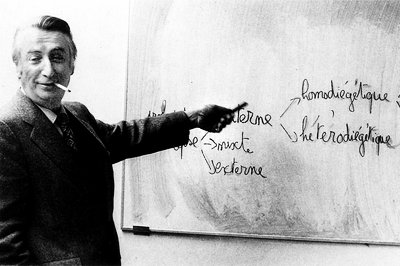
Franz Kafka, aged four.
Max Brod, provoking Franz Kafka: “Why then do you fear love in particular more than earthly existence in general?”Franz Kafka, calm planet, retorting: “You write: ‘Why be more afraid of love than of other things in life?’ And just before that: ‘I experienced the intermittently divine for the first time, and more frequently than elsewhere, in love.’ If you conjoin these two sentences, it’s as if you had said: ‘Why not fear every bush in the same way that you fear the burning bush?’”
(In Roberto Calasso’s K.)

Prospero and Caliban shadow puppets (Underground Railway Theater)
And Caliban again, who haunteth the revery of a man made imbecilic by night:All the infections that the sun sucks up
From bogs, fens, flats on Prosper fall, and make him
By inchmeal a disease! His spirits hear me,
And yet I needs must curse. But they’ll nor pinch,
Fright me with urchin-shows, pitch me i’ th’ mire,
Nor lead me like a firebrand in the dark
Out of my way, unless he bid ’em; but
For every trifle are they set upon me:
Sometime like apes that mow and chatter at me
And after bite me; then like hedgehogs which
Lie tumbling in my barefoot way, and mount
Their pricks at my footfall; sometime am I
All wound with adders, who with cloven tongues
Do hiss me into madness.

And Roland Barthes, packing up a discourse (a storeroom) stuffed to the gills (with gillyflowers, with suitcases, an entombment for Mallarmé himself), in The Neutral, “Discourse makes up for language: always recall this, spelled out on the front wall of the literary S [According to the footnote, “S,” apparently, for Semiology, the chair Barthes “held” at the Collège de France—“S,” too, one thinks for Supplement, and Subject, and ‘Stately, plump, Buck . . .”], the offspring of linguistics, but substituting for it (frolicking in its Supplement): Mallarmé, Variations on a Subject. “—Only, we must realize, poetry would not exist: philosophically, verse makes up for what languages lack, completely superior as it is.” Recall that for Mallarmé (“Quant au livre” {“As for the Book”}): “{poetry might be} hidden away—you could call it Prose, but nevertheless it is still verse, if there remains some secret pursuit of music in the storeroom of Speech.” → I recall one more time (since people made a fuss about it) that it is in this sense that I’ve let myself speak of a fascism of language: language transforms its lack into Law, it abusively subjects us to its lacks: Twelve Tables, Uti lingua nuncupassit (named, instituted, pronounced, proclaimed) ita jus esto [“As language put it, so must the law be” quoted out of Michelet on Vico, according to the footnote. Think, too, of Robert Duncan’s “law of the the,” how every word makes a diminuendo, a vanishing, of subsequent possible words.]: language is law, and dura lex. Now, discourse (literature) “turns” the sed lex, it derails it; it’s the supplement, as act of making up: → literature = freedom → faced with the ruling lack of the Neuter (of language), discourse (in the broadest sense of the term: statement: literary, ethical, pathetic, mythical) opens up an infinite, shimmering field of nuances, of myths, that could allow the Neuter, fading within language, to be alive elsewhere. Which way? I would say, using a vague word, the way of the affect: discourse comes to the Neuter by means of the affect.”
~
I am a Hyacinth. There is the story of the Lumina honking wildly in the dull chill dawn, or the story of the bicycle seat shearing off whilst “one” rode flat out like a Comanche in that same dull chill dawn, none of that’ll “do.” Nothing’ll “do.”